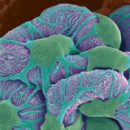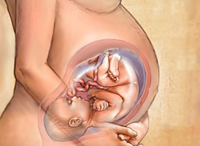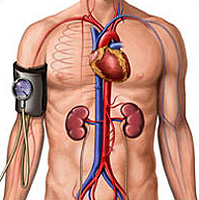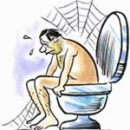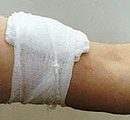Urolithiasis, or nephrolithiasis - a disease manifested by the formation of stones in the kidneys and other organs of the urinary system. The disease occurs in people of all ages - from small children to the elderly.
Content
Starting mechanism of urolithiasis – violation
metabolism leading to the formation of insoluble
salts from which stones are formed. Other predisposing factors:
- The composition of water (rigid water with a large content of calcium salts
- contributes to the appearance of nephrolithiasis) and food (acute and acidic food increases urine acidity, which facilitates the formation of stones);
- constant lack of vitamins;
- injuries and diseases of bones (for example, osteomyelitis, osteoporosis);
- chronic diseases of the stomach and intestines, such as chronic gastritis, colitis, ulcerative disease;
- severe dehydration of the body (for example, in infectious disease or poisoning);
- Various diseases of the kidneys and organs of the urogenital system —
Pyelonephritis, hydronephrosis, nephroptosis, cystitis, prostate adenoma
glands, prostatitis and others;
- Endocrine diseases (parachitoid diseases and T.D.).
The main symptoms of nephrolithiasis
- Pain in the lower back, which can be given in the crotch, genitals;
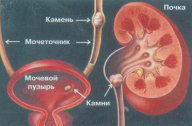
- blend of blood in the urine;
- frequent urges for urination;
- Station of stones.
If the stone completely blocked the lumen of the ureter,
In the kidney, urine accumulates, which causes the attack of the kidney colic. He
manifests itself with sharp grapple-shaped pains in the lower back who quickly
apply to the corresponding half of the abdomen. Pain maybe
last a few hours and even days, periodically verses and
Renewing. After leaving the stone in the urine, blood can appear.
One of the complications of nephrolithiasis is
chronic pyelonephritis. In addition, purulent may occur
Kidney melting – In this case, you will have to resort to surgical
intervention. In addition, the stones in the bladder can provoke
Development of cystitis.
Basic diagnostic methods – General I
Biochemical analysis of urine, biochemical blood test, ultrasound,
Computed tomography and x-rays of the urinary system.
When suspicion of the bladder stone is held cystoscopy.
Treatment of urolithiasis
Treatment of urolithiasis may be conservative, instrumental and operational.
Conservative treatment is assigned in case,
If the stone is small and no complications. It includes reception
drugs and a special diet appointed depending on
from the type of urolithiasis (for example, if phosphate stones are excluded from the menu
Dairy products and vegetables).
B
Low renal stones are removed only
operating path. Stones of the ureter usually manage to omit in the urinary
bubble and remove endoscopically. With the stone of the bladder is carried out
Cystoscope coasting; If this procedure turns out
ineffective, then make an operation with the opening of the bladder.
Well-proved the method of remote
Lithotripsy — crushing stone ultrasonic waves. This technique
the easiest to be transferred to patients. Unfortunately, this method is not always
It turns out effective.
For the prevention of nephrolithiasis, experts recommend:
- Exclude from the Menu Broths, Mineral Water, Chocolate, Coffee, Cocoa,
- acute and fried food;
- limit salt use;
- increase fluid consumption (at least 1.5 liters per day);
- regularly taking diuretic infusions;
- Avoid overeaching.

